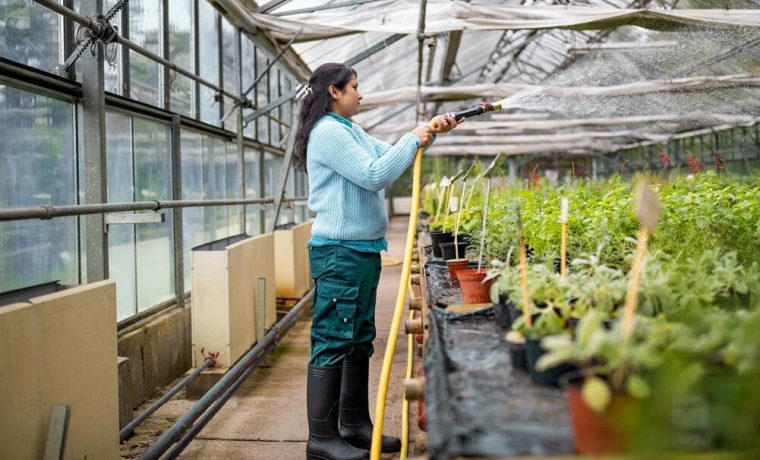Benefits of Fertilisers
Fertilisers can be an invaluable tool to unlock the secrets of sustainable farming. Not only do fertilisers help replenish essential nutrients in the soil, but they can also increase the yields and quality of crops. Through proper use, farmers can benefit from sustainable and successful agricultural practices with fertilisers.
The primary benefits that fertilisers offer are improved crop growth and better soil health. Fertiliser helps to provide plants with the necessary nutrients – such as nitrogen, phosphorus and potassium – for robust growth. Proper application of fertiliser also improves soil fertility by increasing organic matter content and supporting beneficial microbial activity in the root zone. This can lead to increased water retention capacity, reduced pest pressure, improved drainage and better aeration of soils – all important factors in sustainable farming practices.
Types of Fertilisers
Fertilisers are essential components of sustainable farming and play a vital role in helping plants to grow. But what kind of fertilisers should be used? This article explores the different types of fertilisers and how they can improve plant growth.
Organic fertilisers such as compost, manure and seaweed provide nutrients naturally to improve the soil’s fertility. Compost is made from vegetable matter such as fruit peelings or grass clippings while manure comes from cows, horses or pigs. Seaweed contains lots of minerals which help to boost root development and reduce disease making it ideal for use on crops like tomatoes or potatoes.
Inorganic fertilisers are also widely used around the world with synthetic chemicals that give an immediate hit of nitrogen, phosphorus and potassium for quick results.
How to Apply Fertiliser
Nowadays, gardeners and farmers are always looking for the best tips on how to grow the most nutritious and vibrant plants. To encourage growth in their crops, many are investing in fertilisers to unlock the secrets of plant growth. Fertilisers provide essential minerals that give plants an extra boost of nutrition they need to thrive. Here is a guide on how to apply fertiliser correctly so you can get maximum results from your crops.
When applying fertiliser, it’s important to select a product that suits your specific plant’s needs. There are various types of fertilisers available depending on what kind of nutrients you want your plants to absorb. It is also beneficial to read the instructions provided with each type of fertiliser before using it. This will ensure you are using the right amount and application technique for optimal success when growing plants with fertiliser.
Effects of Fertilisers on Different Crops
Fertilisers are an indispensable part of crop growth, providing essential nutrients to plants and enabling them to reach their full potential. But the effects of fertilisers on different crops is not always the same. Scientists have been trying to unlock the secrets of how fertilisers are best used for optimal plant growth in different environments and climates.
Recent research has shown that when it comes to fertilisation, one size does not fit all. Different crops require different amounts of fertiliser depending on their individual needs as well as the climate and soil conditions in which they grow. For example, some crops may need more nitrogen than others while other crops may need phosphorus or potassium-based fertilisers instead.
Challenges to Consider
One of the biggest obstacles scientists face when studying plant growth is that plants don’t always respond to fertilisers in a predictable way. Different species of plants require different types of nutrients and environmental conditions for optimal growth, which means that it can be difficult to develop an effective fertilisation process. Additionally, fertilisers are not always easy to use correctly – improper application can lead to poor results or even damage the environment if not done with care.
Conclusion: Optimising Growth
The use of fertilisers to optimise crop growth has been a long-standing agricultural practice. While the fundamentals are well known, there is still much to learn about how to apply fertilisers in order to get the most out of crops and maximise yields. By understanding the science behind what makes plants grow and thrive, farmers can be sure that their crops will get all the nutrients they need for optimum growth.
In conclusion, using the correct type and amount of fertiliser can play an essential role in helping farmers achieve maximum crop yields. Applying fertiliser according to soil type, plant requirements, climate conditions and other factors is key in order to unlock optimal growth potential from each crop. With careful observation and planning, farmers can create an environment that encourages positive results while reducing any potential risks associated with over or under application of fertilisers.


















